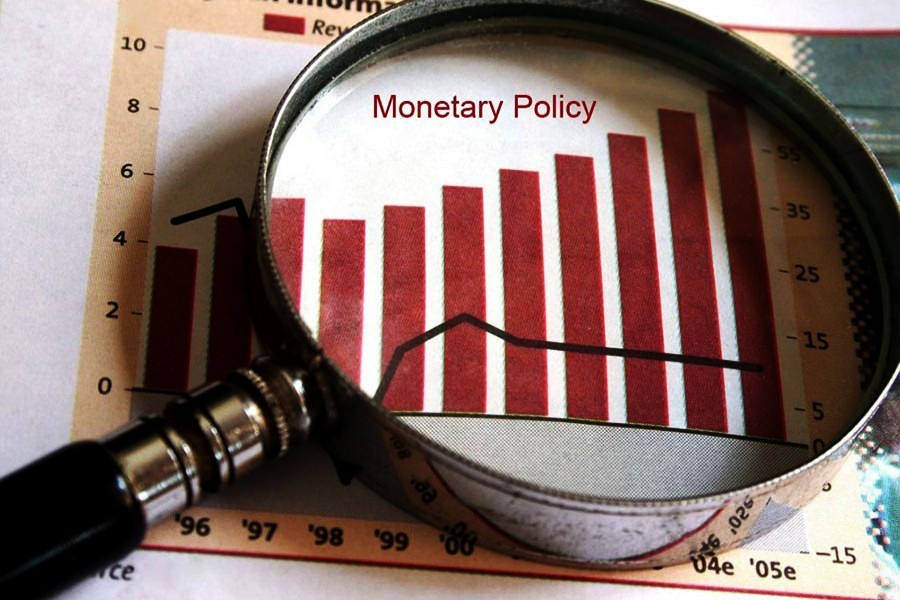
Published :
Updated :

Formulation of the monetary policy statement (MPS) was an annual ritual earlier. Now, it is a six-monthly affair. So, the Bangladesh Bank, under the prevailing circumstances, has been doing the painful exercise twice a year. Yet it (BB) seems to be clueless about the outcome of either the accommodative or contractionary stance of the MPS. The primary goals of the MPS have always eluded the money market regulator.
This time the problems facing the economy are truly stubborn and all-engulfing. According to the MPS unveiled on Wednesday last, the economy is grappling with significant macroeconomic headwinds, heightened inflation, diminishing forex reserves and exchange rate volatility exacerbated by rising balance of payments deficit. The main objective of the latest MPS is lowering of inflation. The government had earlier lowered the GDP growth rate by one percentage point for the current fiscal year. The proposed cut in credit growth for both private and public sectors is in line with that revised target. In addition, the central bank has raised the policy rate by 25 basis points as part of its inflation-containing measures. Some economists find the hike too low to be effective against high inflation, which, according to the BBS estimate, was 9.41 per cent in December last.
It does not need any elaboration that high inflation is the number one cause of headaches for the government and the central bank as well. All the upward and downward revisions of numbers and shifts in policy stances are targeted to rein in the Consumer Price Index (CPI)-based inflation. The tighter monetary policy stance no doubt is a prudent move, but the prospect of its success in lowering inflation remains very much clouded when the depreciation of the Bangladesh Taka (BDT) vis-à-vis the US dollar is an ongoing process. There has been a call from the multilateral lenders as well as experts at home to go for a market-based exchange rate. The BDT depreciation has already caused substantial erosion in the country's reserves and balance of payments (BoP). The central bank is not comfortable with the idea of introducing market-based exchange rates in one go right at this moment. That is why it is contemplating the implementation of the 'crawling peg system'.
Be it market-based rates or crawling peg, the forex market is unlikely to behave normally unless and until there is a healthy inflow of the greenback. So, the dollar will continue to be expensive, which will again make all imports, including essentials, costly. Then again, there is greedflation, a term used to describe profiteering by corporates in a situation marked by high inflation. Most businesses, including corporates, in Bangladesh are very much prone to profiteering all the time in the absence of right kind of market monitoring.
Given the tight forex situation and illogical behaviour of the market, the success of the contractionary monetary measures in combating inflation remains in doubt.
Not that the MPS discusses monetary policy measures alone. It also focuses on many other macroeconomic issues of import. Non-performing loans, loan irregularities, and banks' financial health have hit newspaper headlines in recent months. The MPS, deliberately or otherwise, has bypassed these issues. 'Not a single bank has collapsed' cannot be an answer to the ills now eating into the vitals of the banking sector. One or two banks can be kept running utilising the resources of state-owned banks and financial institutions which also have their problems. The BB will find it hard to manage if candidates for such support are too many. Time is running out for the BB to do all the tough jobs to help the ailing banking sector shoot its major problems.


 For all latest news, follow The Financial Express Google News channel.
For all latest news, follow The Financial Express Google News channel.